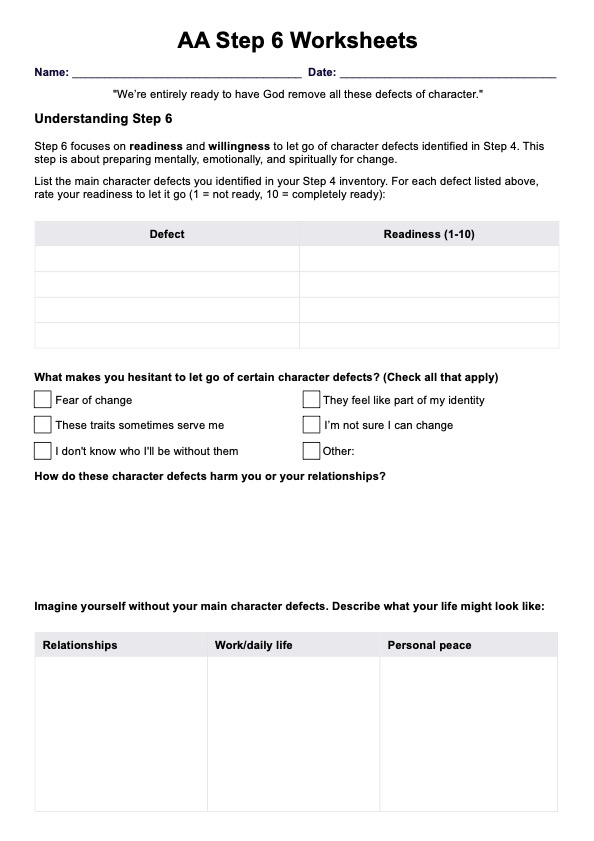Individuals in addiction recovery, especially those following the twelve steps of Alcoholics Anonymous (AA), typically use AA Step 6 Worksheets for self-examination and personal growth.

AA Step 6 Worksheets
Improve your client's recovery journey with the AA Step 6 Worksheet as a valuable tool for self-reflection and growth in addiction recovery.
Use Template
AA Step 6 Worksheets Template
Commonly asked questions
AA Step 6 Worksheets are used during Step 6 of the Twelve Steps, where individuals assess their character defects. They can also be revisited regularly for ongoing self-improvement.
Users fill out the worksheet by listing their character defects, providing specific examples, reflecting on their willingness to change, and outlining actionable steps to address these defects. They may also discuss it with a sponsor or mentor.
EHR and practice management software
Get started for free
*No credit card required
Free
$0/usd
Unlimited clients
Telehealth
1GB of storage
Client portal text
Automated billing and online payments











